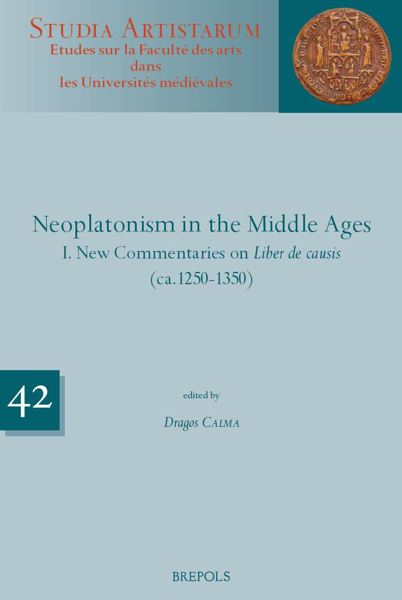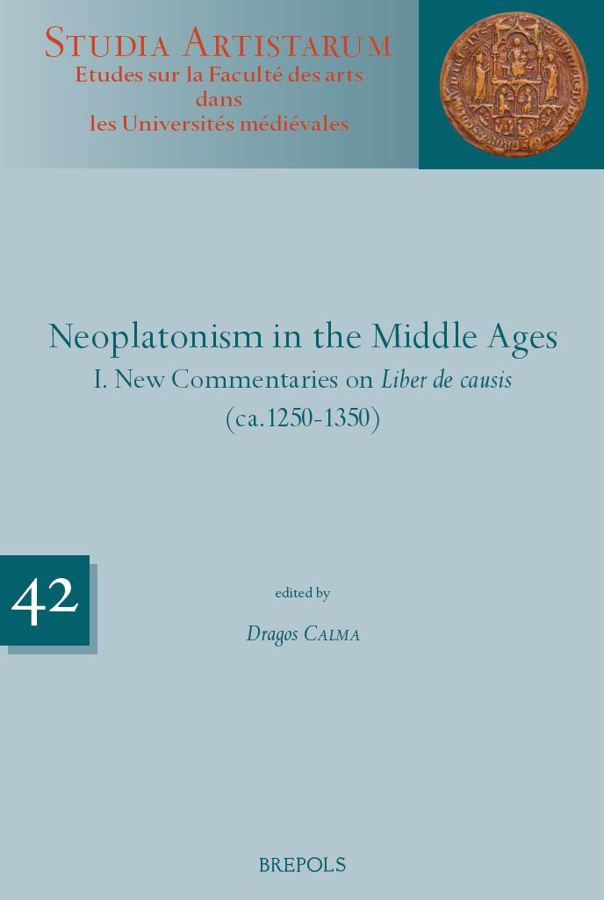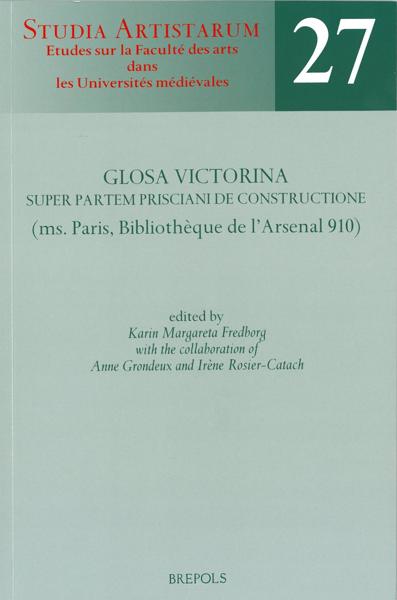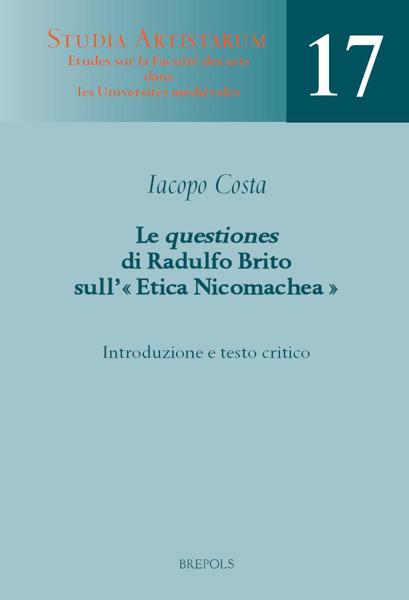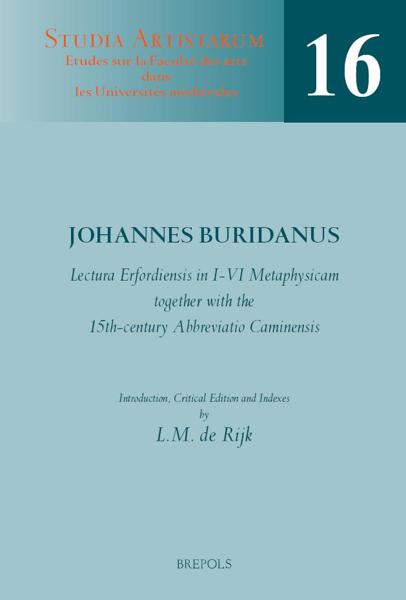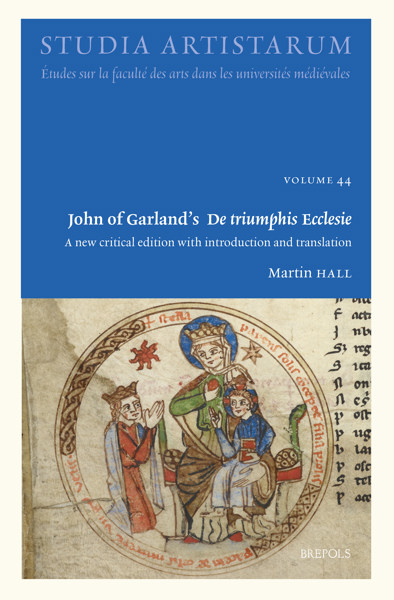
Neoplatonism in the Middle Ages
New Commentaries on 'Liber de Causis' and 'Elementatio Theologica'
Dragos Calma (ed)
- Pages:2 vols, 983 p.
- Size:156 x 234 mm
- Language(s):English, French
- Publication Year:2016
- € 120,00 EXCL. VAT RETAIL PRICE
- ISBN: 978-2-503-55474-7
- Paperback
- Available
- € 120,00 EXCL. VAT RETAIL PRICE
- ISBN: 978-2-503-56650-4
- E-book
- Available
- Contains contributions in Open Access
The fortune of the Greek-Arabic neoplatonism in the Middle Ages and Renaissance
“I hope I have given an idea of the richness of the collection and of the interest of the many points touched upon in these commentaries. What they all have in common is the fact of having been written by authors who were perfectly aware of the origins of the De Causis” (Cristina D’Ancona, in The International Journal of Platonic Tradition, 13, 2019, p. 9)
“This remarkable collection offers a progress report on a long-term initiative to explore the full range of later medieval Latin commentaries on the Neoplatonic tradition.” (Robert Pasnau in Oxford Studies in Medieval Philosophy, 5, 2017)
“Beide boekdelen hebben heel wat te bieden aan wie inzicht wil verwerven in neoplatoonse invloeden op het laatmiddeleeuwse en vroeg-renaissancistische denken. Zij vormen zonder meer een belangrijk werkinstrument voor verder onderzoek.” (Jules Janssens, in Tijdschrift voor Filosofie, 80/2018, p. 556)
“(…) the cumulative effect of the articles when combined with the well-known commentaries of Thomas Aquinas, Siger of Brabant, Albert the Great, and Giles of Rome (…) drive home the point of the continued vitality of the study of the Liber de causis from the thirteenth to the fifteenth century.” (John Monfasani in Renaissance Quarterly, LXX/4, 2017)
One of the most important texts in the history of medieval philosophy, the Book of Causes was composed in Baghdad in the 9th century mainly from the Arabic translations of Proclus’ Elements of Theology. In the 12th century, it was translated from Arabic into Latin, but its importance in the Latin tradition was not properly studied until now, because only 6 commentaries on it were known. Our exceptional discovery of over 70 unpublished Latin commentaries mainly on the Book of Causes, but also on the Elements of Theology, prove, for the first time, that the two texts where widely disseminated and commented on throughout many European universities (Paris, Oxford, Erfurt, Krakow, Prague), from the 13th to the 16th century. These two volumes provide 14 editions (partial or complete) of the newly-discovered commentaries, and yields, through historical and philosophical analyses, new and essential insights into the influence of Greek and Islamic Neoplatonism in the Latin philosophical traditions.
VOL. 1: New Commentaries on Liber de causis (ca. 1250-1350), 562p.
Dragos Calma, Acknowledgements - 9
Dragos Calma, The Exegetical Tradition ofMedieval Neoplatonism. Considerations on a Recently Discovered Corpus of Texts - 11
Mihai Maga, Remarques sur le commentaire au Liber de causis attribué à Pierre d’Auvergne - 53
Alexandra Baneu / Dragos Calma, The Glose super Librum de causis and the Exegetical Tradition - 137
Alexandra Baneu / Dragos Calma, Le commentaire sur le Liber de causis de Jean de Mallinges - 153
Iacopo Costa / Marta Borgo, The Questions of Radulphus Brito (?) on the Liber de causis - 287
Iulia Székely / Dragos Calma, Le commentaire d’un maître parisien conservé à Erfurt - 359
Delphine Carron, A Theological Reading of the Liber de causis at the Turn of the Fourteenth Century: The Example of William of Leus - 467
Index - 551
VOL. 2: New Commentaries on Liber de causis and Elementatio theologica (ca. 1350-1500), 418p.
Dragos Calma, Acknowledgements - 9
Dragos Calma, A Medieval Companion to Aristotle : John Krosbein’s Paraphrase on Liber de causis - 11
Fiorella Retucci, Sententia Procli alti philosophi. Notes on an Anonymous Commentary on Proclus’ Elementatio theologica 99
Dragos Calma / Iulia Székely, Cause and Causality in Henry of Geismar’s Questio de quolibet - 181
Mario Meliadò, Le Questiones super Librum de causis attribuite a Johannes Wenck. Concezione, fonti e tradizione manoscritta del commento - 225
Alexander Baumgarten, Theologia philosophorum parcialis. Un commentaire sur le Liber de causis - 271
Laure Miolo, Liber de causis in libraria. Pour une mise en perspective du Liber de causis dans la bibliothèque du collège de Sorbonne - 337
Index - 337
